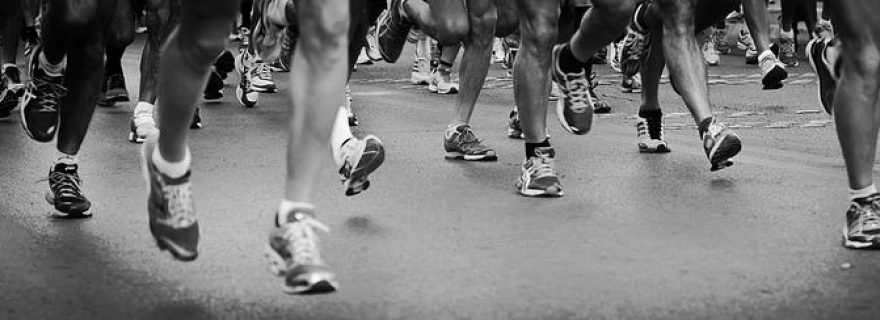Running for happiness
Why do some people run marathons? And why do they often appear to be so happy, even exhilarated after hours of running? There must be something wrong with them, or do they know something that we don't?
To someone who never really got into the habit of running, it must be a complete mystery why some people will spend hours per week on this seemingly boring activity. The short explanation: they are on drugs! Not exactly the drugs that people get at a coffee shop or in some dark alley, but substances that are very similar and are created within the brain during a really good run.
Most experienced runners will claim that during and for some time after a good run they feel at peace, relaxed, happy, and relieved from pain. Sometimes they feel they have become one with their surroundings, they have enhanced perception, feel invincible, and, occasionally, even euphoric.
This phenomenon of the “runner’s high” has been debated for decades. Was it real or a myth? The subjectiveness of it made it difficult to find hard evidence. In the early eighties it was discovered that, after a good exercise, there are more β-endorphins in the blood. Endorphins are the body’s natural (or endogenous) version of morphine, so that would answer the question -- runners feel great because they are on morphine. But it was not that simple. β-Endorphins cannot move from the blood to the brain, so this discovery did not explain changes in mood and cognition.
However, recently researchers performed a PET scan on experienced runners before and after a 2-hour run and found that after the exercise there are more endorphins in the brain as well.
Meanwhile some other researchers discovered that after endurance exercise the levels of the endogenous version of cannabis, endocannabinoids , were also elevated in the brain.
No wonder these runners feel great, they are under the influence of their self-produced versions of both morphine and cannabis.
But wait, then running must be bad for you, right?
Intoxication with cannabis causes impairments in working memory, attention, and spatial learning. Regular heavy users have a lower overall IQ than non-users, are slower at processing information, and perform worse on immediate and delayed memory tasks.
So do athletes have poor memory and problems concentrating?
On the contrary, straight after exercise their working memory and long-term memory are perfectly fine, and their ability to store information in long-term memory even appears to be better during exercise. People who are physically active and fit are better at focussing their attention and are faster at processing information. Exercise may even help in generating new neurons in the dentate gyrus, a brain area that is important for learning and memory.
Now I’m puzzled. The substances are similar, people get high from both, but one is good for you and the other is bad for you?
Obviously, the cannabinoids that your brain produces and the ones in cannabis are not exactly the same. For instance, the endogenous kind is rapidly removed from the brain after exercise, while the recreational kind takes several hours to be broken down, and even weeks to be completely removed from the body. Also, in cannabis there are many different substances, each having their own specific effect. The substance that is mainly responsible for the negative effects on memory is THC. Another substance in cannabis, called cannabidiol, counteracts the negative effects of THC. But because THC is the main mood-altering substance in cannabis, the concentration of THC in recreational cannabis has been boosted tenfold over the past decades.
So, different cannabinoids can have different and even opposite effects. Endocannabinoids that are released in the brain during exercise seem to cause a high that is similar to that from cannabis, but without the negative consequences on attention and memory.
Although a trip to the coffee shop may be the easier way, next time you are in need of a boost of happiness, consider going for a run. Especially during exam week.





